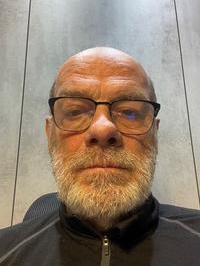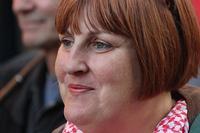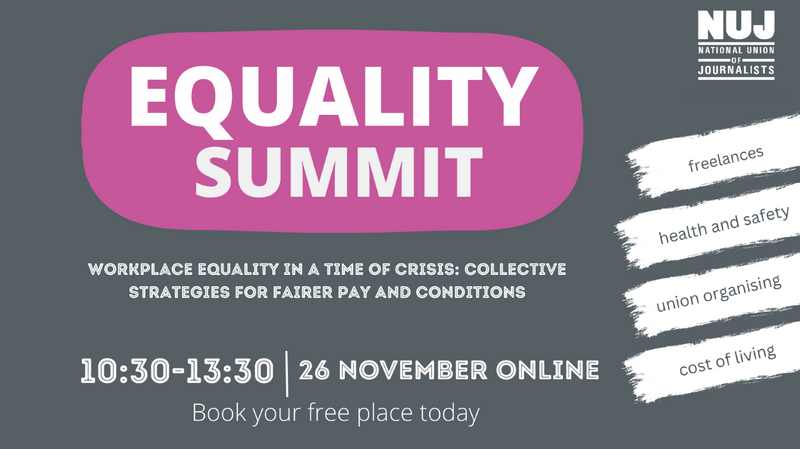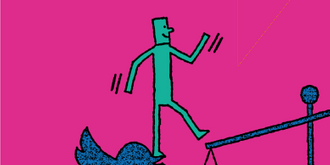How to harness collective union action to challenge employers and protect marginalised groups of workers.
Workplace equality in a time of crisis: collective strategies for fairer pay and conditions
10.30am: Michelle Stanistreet, NUJ general secretary
Panel 1 - Precarious working and the cost-of-living crisis: union and industry experts open the discussion on the economy and how we must harness collective union action to challenge employers and protect marginalised groups of workers.
Chair: Natasha Hirst, NUJ vice-president
Speakers: Phil Taylor, professor of work and employment Studies, Strathclyde Business School; Kudsia Batool, TUC's head of equalities and strategy; and Tracy Walsh, freelance tutor and educator and member of the RED Learning Cooperative.
Panel 2 - Organising for equality in the workplace - how to embed equality and health and safety in all your collective negotiations and support freelances to negotiate better rates.
Chair: Tim Dawson, NUJ’s Freelance Industrial Council chair.
Speakers: Natasha Morris, NUJ legal and equality officer; Raj Ford, NUJ BBC rep; Mostafa Rajaai, NUJ organiser.
1.30pm close
Further speakers tbc. There will be comfort breaks between sessions.

Phil Taylor will argue that workers’ precariousness is a universal experience for workers in a neo-liberal economy, particularly since the financial crash of 2008 and exacerbated now by the cost of living crisis and the threat of recession. Clearly, precariousness is most evident amongst gig workers, those on zero hour contracts and amongst the self-employed. However, because of lean methodologies, work intensification, performance management, monitoring and digitilisation, as work is ceaselessly reorganised and re-engineered, precariousness is experienced by millions in supposedly stable full-time employment. These contemporary workplace regimes have generated an epidemic of work-related stress, depression and anxiety. Phil will say that fighting for workers’ health and safety is inseparably connected to challenging the causes of precarious work.

Trade Unions have historically been a place of solidarity for workers, but as the nature of how we work changes, what strategies have unions applied to ensure they engage with those who are outside of the traditional 'core' of work and the most exploited? Tracy Walsh is studying part-time for a PhD at Greenwich University, which explores the relationship between gender, race and class in British trade unions. She is an active member of the University and Colleges Union and a trustee for the Young Women’s Music Project.

Kudsia Batool has a wealth of experience in leadership and negotiation, with a great record of winning for working people. Her mission, and that of the TUC, remains making sure all people can work with dignity, respect and a fair share of the wealth they create. She takes on leadership of TUC equalities and strategy team at a challenging time. The far right is on the rise, putting us all at risk from their agenda of division and hate. Her work focuses on making sure workplaces draw on the talents of all, with nobody held back by prejudice or discrimination. Our economy, democracy and communities are all stronger when everyone’s talents and voices are included, shaping the decisions that affect them.
NUJ organiser Mostafa Rajaai will talk about how equality and health & safety issues can be valuable tools to organise the workforce and undo the power imbalance, often present in many workplaces. He said: "Equal Pay, parental leave, safe working environments and reasonable adjustments are only some of the areas where the NUJ can make a difference in members’ lives.”
There will be a special workshop for members in the early stages of their careers on Thursday 8 December, 12.30 to 1.30pm. It will look at how you can bring about change by becoming involved in NUJ chapels and branches.We will examine how existing reps can encourage more young members to become involved in NUJ democracy and develop ways of supporting early careers members. The union’s policy and direction is shaped by the voices of active members who are involved in branches, chapels and committees. Find out how to be part of our collective endeavour to protect and promote our rights at work. Being a member of the NUJ is one of the passports to a successful career in the media. It can support new entrants and give them access to a range of events, training and opportunites to meet others in the business. And the union want to know how it can help.


